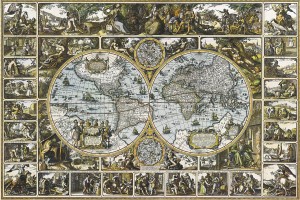
RACE, LAW AND INSTITUTIONS IN THE COLONIAL ANDES
Gabriela Ramos (University of Cambridge)
Spanish claims to sovereignty over the Americas (also called “the New World”) involved the need to count on a legal framework to deal with unknown societies and their customs. The Papacy granted the Spanish Crown the right to take possession of the newly “discovered” territories with the condition that their inhabitants would be brought to the fold of the Catholic Church. These circumstances set Spanish colonisation apart from other experiences of colonialism in global history, as the Spanish crown had as a duty securing the conversion of the indigenous people of the New World to Christianity. Spanish material interests notwithstanding, relations between rulers and ruled were established within legal and religious obligations. This presentation discusses how, as the Spanish state made use of the law to define the status of the indigenous people, categorised them as “wretched”, thus deserving royal protection. My research on the links between religion, health, and the body in the colonial Andes has taken me through the study of the legal framework and institutions set up to regulate relations between sovereign and subjects. Regarding the sovereign, prevalent ideas and practices about his role in early modern Spain were extended among the peoples of the New World. As for the ruled, the Spanish monarchy used both old and new criteria to define who they were and decide what was their place in society. Spanish colonialism applied in the New World categories that gradually led to ideas and customs fixing social and cultural inequalities.
20. ledna 2020 od 17.00
Šporkův palác, místnost č. 303
